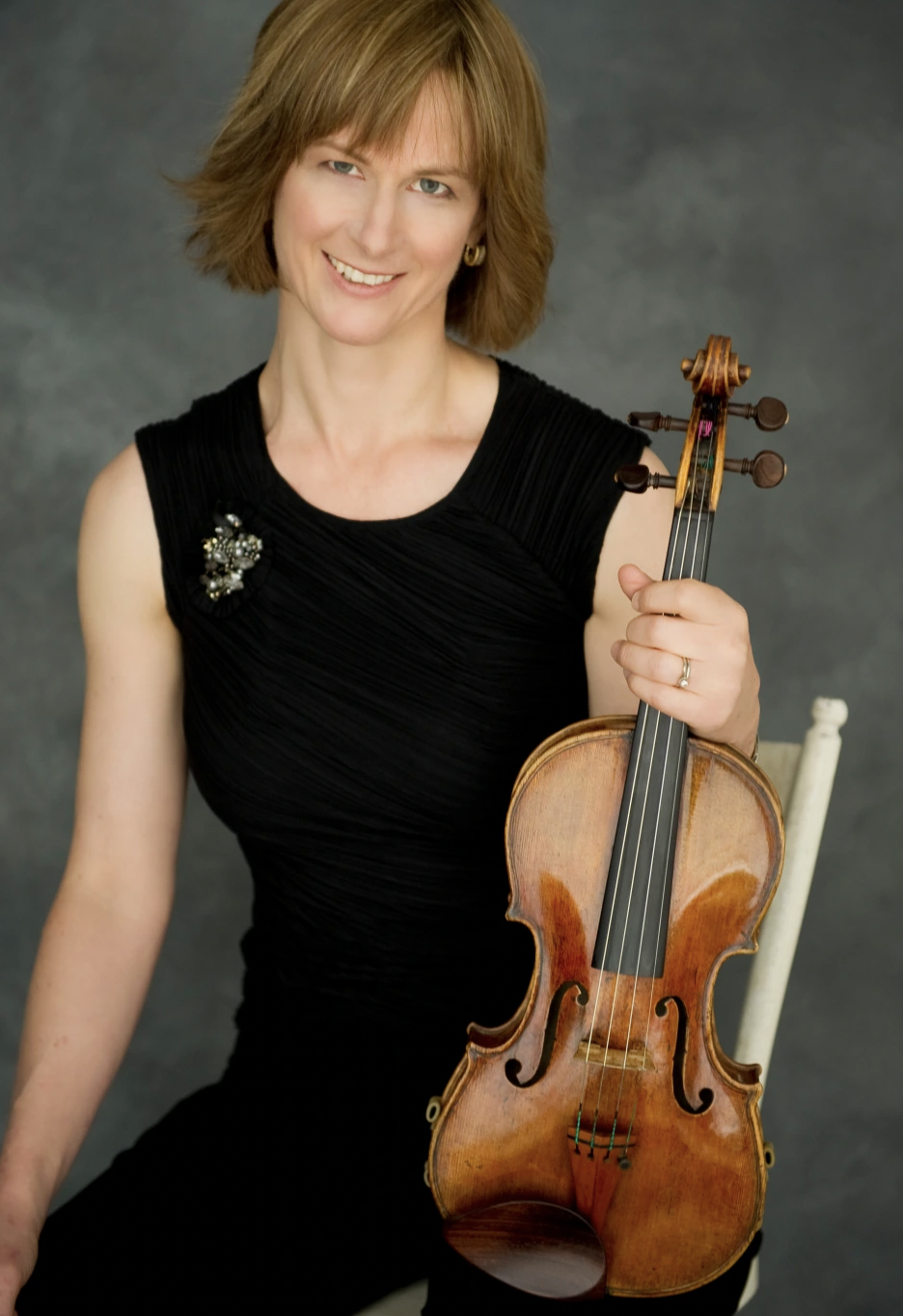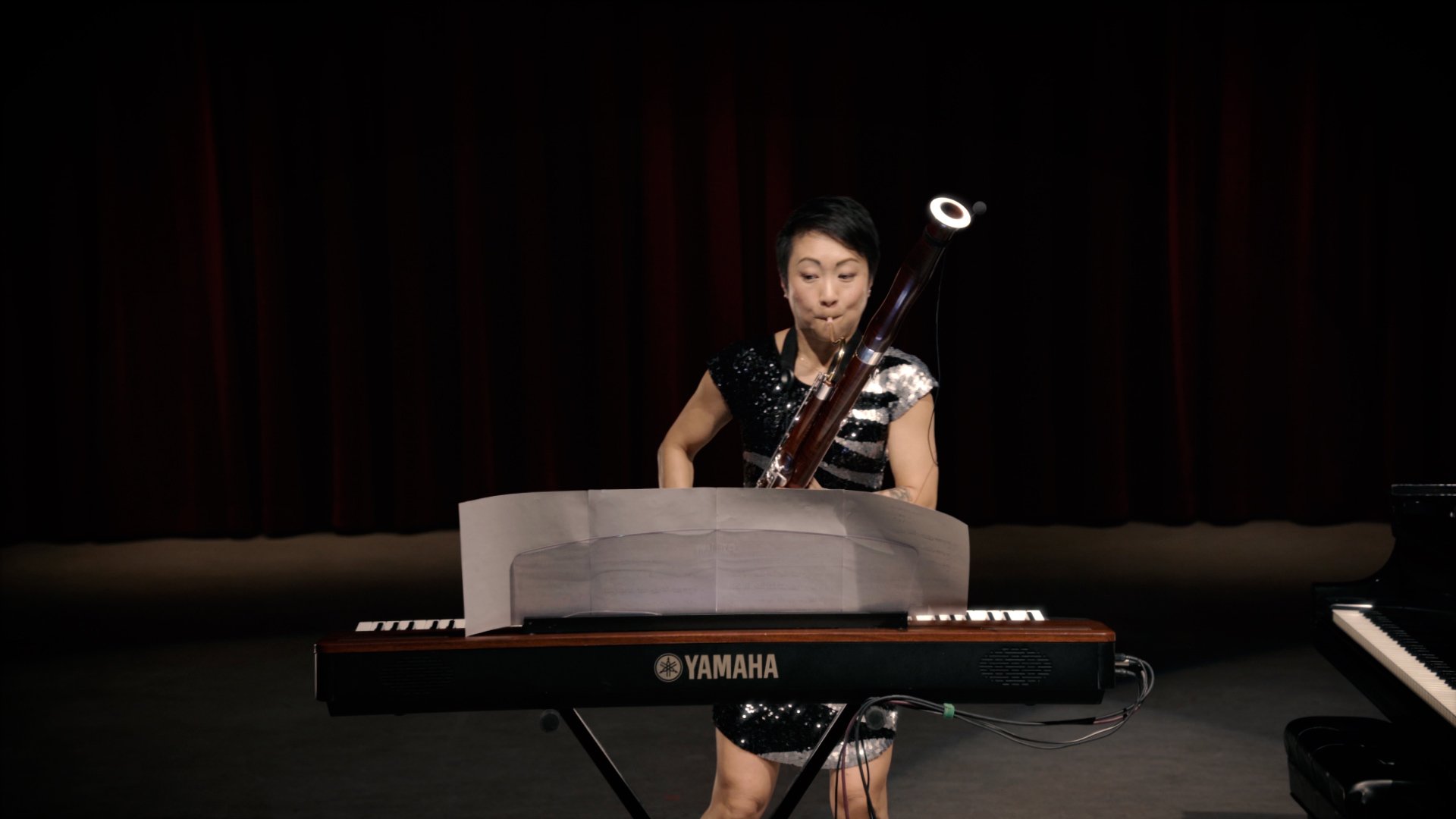Humour and conversation imbue Bassoon!, Vetta Chamber Music’s lively upcoming concert
Bassoonist Ingrid Chiang and pianist Michelle Mares join violinist Joan Blackman for a program of fun
Michelle Mares.
Joan Blackman.
Ingrid Chiang. Photo by Turning Point Ensemble
Vetta Chamber Music presents Bassoon! March 18 at 2 pm at West Point Grey United Church; March 19 7:30 pm and March 20 at 2 pm at Pyatt Hall; and March 21 at 7:30 at ArtSpring on Salt Spring Island.
SOME CONCERTS ARE so fresh and revelatory that they not only stir the soul but also spark other creative new ideas. Such was the case when violinist Joan Blackman, artistic director of Vetta Chamber Music, attended a show by Turning Point Ensemble that featured bassoon soloist Ingrid Chiang. Seeing the woodwind-instrument maven perform proved so powerful that Blackman set about planning Bassoon!. Vetta’s upcoming concert features violin, piano, and the program’s namesake instrument that’s known for its distinctive tenor and bass notes and is notoriously difficult to play.
“The story behind this unusual concert is as quirky as the combination,” Blackman tells Stir. “Several years ago, one of our esteemed members of the board of directors dropped a hint that he loved the bassoon. My jaw dropped, thinking, ‘Okay, bassoon goes with oboe, with wind quintets, but that repertoire is limited, and there would not be much for a poor violinist to do.’ But the idea of having a bassoon kept niggling at me.
“Fast forward to a Turning Point concert,” she says. “I was in the audience experiencing the presence of Ingrid Chiang performing on her bassoon. She made it dance and yell and sing and cry, and she seemed to love doing it. ‘Okay, I thought: if anyone can make bassoon on Vetta work, it is Ingrid!’ I set about finding repertoire that might work for a combination of bassoon, violin, and piano.”
The upshot is Bassoon!, an energetic program of five works, some original and others arranged, being performed by Blackman, Chiang, and pianist Michelle Mares.
Chiang, who was born in Taipei, Taiwan, and emigrated to Vancovuer with her family at 15, has been principal bassoon of the Vancouver Opera Orchestra for over 20 years. She is in her 10th season with Turning Point Ensemble and serves on faculty at UBC. “I want my students, my family and my friends to see and hear music in any genre as part of everyday life,” Chiang says.
Mares, a Vancouver native, has been performing internationally since she was 10 and has appeared with nearly every major orchestra in Canada. Upon earning her performance degree at the Mozarteum Conservatory in Salzburg in 1995, she lived and worked in Europe for nearly two decades. In 2008 she returned to the West Coast and is on the piano faculty at University of British Columbia. “The piano is essentially a percussive instrument,” Mares tells Stir. “The challenge is to make the instrument sing, connect and make as many colours as are infinitely possible on it.”
Finding repertoire for bassoon, piano, and violin was a fun challenge for Blackman; she says what has been recorded for this combination of instruments is limited. Blackman first came across Russian-born, Italian-and German-trained composer Mikhail Glinka’s Glinka’s Trio pathétique in D minor. From there, she discovered Beethoven’s Trio in G, WoO 37, an early work for flute, bassoon, and piano.
The musicians arranged Da Falla’s charming Siete Canciones populares españolas (“Seven Spanish Folksongs”). Each song is derived from a different region of Spain, while all of them deal with love.
Chiang will perform Shared Solitude for bassoon, piano, and footwork by Réjean Marois. “This solo piece is about ‘being alone without a sense of loneliness…’,” Marois notes in a statement for Turning Point Ensemble. “The piece has three sections: the first one is built on a strong dance rhythm where the soloist invites the audience to move along with her. The second section is a short introspective blues, followed by an energetic theme with variations that leads to a conclusive short cadenza.”
Finally, the musicians will perform their own arrangement of Ravel’s Bolero “on that same theme of multitasking bassoon players!” Blackman says.
“Because the bassoon naturally brings up the humour aspect of music—not always, but they can make pretty funny sounds!—I decided that conversation and humour were the pervading themes that would tie this together,” she adds.
For more information, see https://vettamusic.com.















